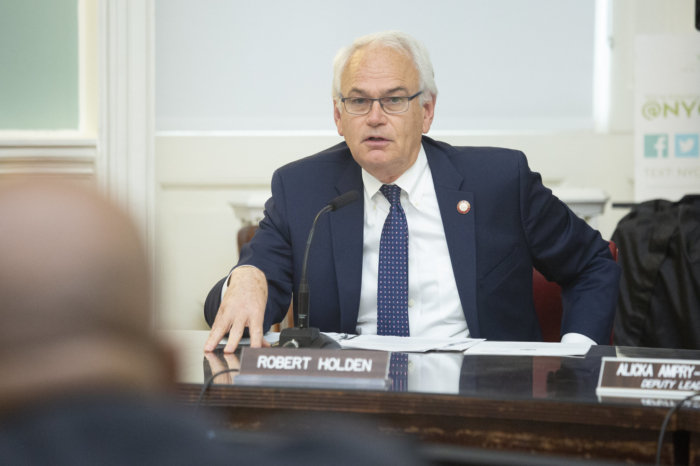Councilman Antonio Reynoso is at the center of a deal that City Council reached with organized labor and Department of Sanitation on Oct. 10 about how to restructure the way commercial waste cleanup is parceled out around the city.
The amended version of the bill, which Reynoso sponsored, will create a system that divides the city into five zones, and designates a limited number of trash haulers to serve each area.
The bill would end the prevailing open market waste system, where up to dozens of different waste companies can serve the same neighborhood. It was aimed at cutting down on redundant truck routes to reduce carbon emissions and improve work conditions for drivers who now sometimes work up 12-hour shifts.
Until the recent breakthrough, the legislation had stalled over the issue of whether to split up the city into exclusive or nonexclusive waste zones. Originally Reynoso, who chairs the Council’s Committee on Sanitation and Solid Waste Management, had been pushing for exclusive zones, where the city would designate a single sanitation company to pick up all trash in a given area.
In May, Reynoso introduced a bill under where the city would be split up into 20 zones, which would each be served by a single waste company. Sanitation Commissioner Kathryn Garcia, who has been pushing for the nonexclusive zones, had been negotiating for weeks with Reynoso. Their agreement caps the number of private carters in any zone at three.
The solution represents a compromise on the issues that has pitted different factions of organized labor against one another. City & State reported that while Teamsters Local 813 and Laborers Local 108 disagreed over whether an exclusionary plan would be best for their workers.
The Teamsters argued that it would lead to result in better pay and working conditions for their members, while the Laborers argued that allowing for competition within zones would cost the fewest workers their jobs.
At a Crain’s Business Breakfast on Oct. 15, Garcia admitted that the compromise might leader to some sanitation companies going out of business, but she claimed that the total number of workers would remain the same and that the department would work with any sacked workers to get rehired.
The next step is for the bill to pass through the Sanitation Committee, which hasn’t scheduled a hearing yet, but Politico reported that Reynoso is aiming to have the bill passed at the Oct. 30 meeting.
Reynoso did not respond to multiple requests for comment for this article.


































